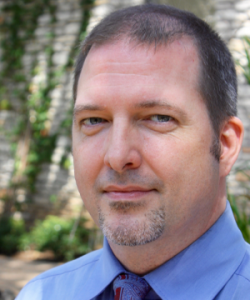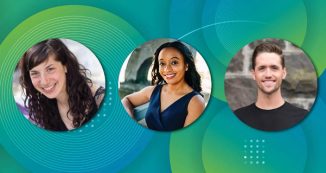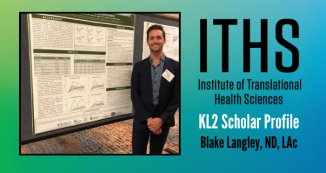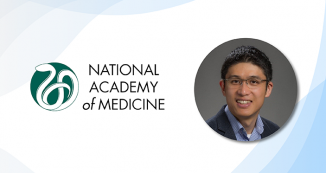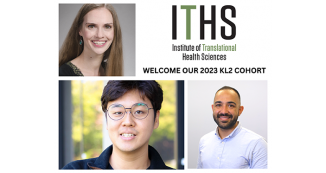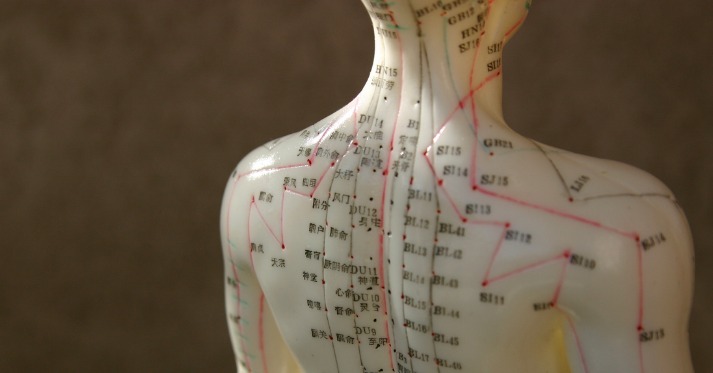
23 May KL2 program expands to include a scholar in integrative medicine
The National Center for Complementary and Integrative Health (NCCIH) has awarded ITHS and Mark Sodders, DAOM, L.Ac., $350,000 over three years to add a new concentration into the KL2 program. NCCIH, an institute at the National Institutes of Health (NIH), created this opportunity to leverage existing career development programs for Clinician-scientists who work in medical and health care fields not typically considered part of conventional medicine. Dr. Mark Sodders will conduct a trial to investigate the feasibility of an acupuncture intervention for headache post-traumatic brain injury (TBI).
The ITHS KL2 Program provides clinicians and scientists with formal training and mentorship in translational methods so that they can build research careers alongside their medical or basic science training. Each year, ITHS selects three investigators to join the program. With this additional funding, ITHS has been able to expand the program both with an additional scholar and a new area of scientific study.
“I am excited to join such a collaborative, multidisciplinary environment,” said Dr. Sodders, speaking about joining the KL2 Program, “and I am looking forward to getting to know the other scholars and their research better, and perhaps work on projects together down the road.”
Dr. Sodders is a licensed acupuncturist and Senior Fellow Trainee in Complementary & Integrative Health at the Harborview Injury Prevention and Research Center. “As a profession, acupuncturists are not generally found in the mainstream of conventional health care,” said Dr. Sodders, despite his personal experience with the therapeutic impact of the practice. Dr. Sodders spent many years as a private practitioner, observing personally and through the work of this peers how acupuncture can benefit patients, specifically those suffering from traumatic brain injury (TBI).
Acupuncture is not one of the things we typically think of in terms of rehabilitation methods, but I was getting good results in the clinic and wanted to see if I could help more people.
“Acupuncture is not one of the things we typically think of in terms of rehabilitation methods, but I was getting good results in the clinic and wanted to see if I could help more people.” Dr. Sodders then began transitioning his career towards academic research through the Building Research across Interdisciplinary Gaps (BRIDG) T90/R90 Training Program with the School of Nursing. “We need to see if this is something that can work for people with chronic pain and disability,” he thought as he began working on his first training grant in 2016. Through this endeavor, Dr. Sodders will begin asking scientific questions to generate academic evidence for that which he has experienced in the clinic.
Standard treatment for TBI includes a wide range of options such as pharmaceutical and physical approaches. Dr. Sodders will apply translational research techniques in order to isolate acupuncture alone and determine if the non-pharmaceutical intervention of inserting needles can affect a change in the brain. Specifically, he is looking at headache-related pain and neuropsychiatric symptoms like depression. However, there are many unanswered questions about the TBI patient population; whether they are interested in acupuncture, whether these methodologies are preferable to existing treatment options, or whether specific acupoints can be tolerated during treatment.
“We need compelling evidence to begin this shift in thinking,” says Dr. Sodders. This training grant is a unique opportunity to gather initial data and bring non-conventional ideas into academic study. Dr. Sodders’s award was one of only four granted nationally by NCCIH. During his years as a KL2 Scholar, Dr. Sodders will study research elements and evaluation methods for conducting a feasibility study. He will then carry out a trial to determine whether or not administering acupuncture for headache-related pain, depression, and cognitive difficulties can have a beneficial impact among persons with traumatic brain injury. Ideally, this trial will result in a peer-reviewed publication, the ‘gold-standard’ for academic science.
With new contributions to peer-reviewed literature in this field, Dr. Sodders hopes that this could lead to additional research funding, and perhaps wider insurance coverage for patients. Personally, Dr. Sodders hopes to expand his research from pain to include evaluating executive functioning. In other words, with the help of acupuncture treatment, can patients who have sustained TBI improve their quality of life and live more independently?
“Most people have only seen acupuncture as an exotic curiosity, perhaps at a spa, and not as an evidence based medical procedure,” thought Sodders, hoping to change that perception. The KL2 career development award will provide Dr. Sodders the dedicated research time and funding to pursue this goal.




